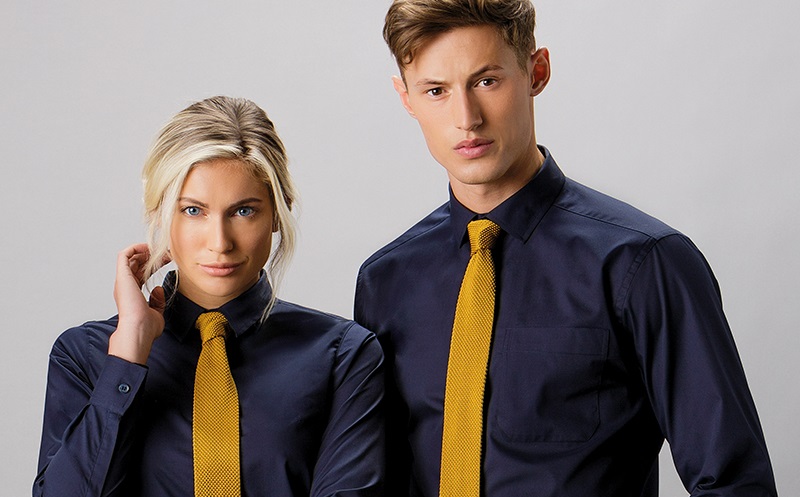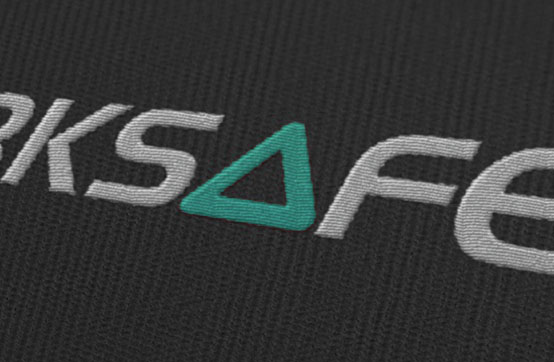
Choosing a Workwear Supplier: The Ultimate Checklist
Many businesses either choose or are required to provide workwear for their employees. Workwear may take the form of corporate branded clothing, Personal Protective Equipment (PPE) or bespoke uniforms. If your workers are exposed to hazards and risk of injury, you may be required to provide PPE. Or you may choose to invest in staff workwear to enhance team morale, increase productivity and boost your brand. Whatever the reason for giving employees workwear, there is a financial outlay and you want to get it right first time. So it’s important to choose a workwear supplier that can deliver on their promises and exceed your expectations.
Take a look at our ultimate 10-step checklist for choosing a workwear supplier. We’ve included the top “must-haves” to help you ask the right questions and find the best suppliers for your needs.
1. Experience of the Supplier
Many of us will start our search for a new supplier online, even if we then progress to phone calls and meetings. But anyone can set up a website, so how can you tell if a supplier has the expertise and experience to fulfil your order satisfactorily? Are they trustworthy enough for you to invest valuable resources to build an ongoing working relationship with them? If a workwear supplier has been trading for many years, you can safely assume they have achieved a respectable level of success. According to the Office for National Statistics (ONS), only 40% of small businesses are still trading five years after they were established. So if a company is going strong 5, 10 or several decades down the line, they must be doing something right. Most companies will clearly state when their company was founded in their “About Us” page. If there is no mention of how long they have been in business, it may be worth doing further research before committing to buy from them. Check if the supplier has relevant experience and expertise to provide what you need from them. What do they know about your sector and which companies similar to yours have they supplied? Do they hold any accreditations or awards? Both experience and expertise can allow you to purchase with confidence. Don’t be afraid to ask around. Have any of your colleagues done business with the company previously? Was it a positive experience?
2. Company Values
Most business owners have a clear idea of the values they hold for their company and what they expect of partner companies. If certain business values are important to you, take a look around a workwear supplier’s site or contact them to ask questions. Ensuring your values align with those of a supplier is especially important if you intend to place more than a one-off order — which for workwear, is likely to be the case. Does the supplier have sustainability and ethical policies if these are important to you? Do they source products from responsible factories, and use sustainable materials to produce their garments? Are they committed to complying with industry quality standards? Do they demonstrate a commitment to safeguarding their employees against harm? A reputable supplier will have these policies and values freely available on their website. If you can’t find them, get in touch and ask to see them. A disparity in values and poor working standards are often major causes of relationships breaking down. Choose with care in the first instance and you will save yourself time, money, stress and disappointment in the long-run.
3. Product Quality and Suitability
If you’re kitting out your whole workforce, workwear is likely to be a considerable cost to your organisation. You want to be sure the clothes you purchase are fit for purpose and built to last. Take a look at the product specifications for the items you are interested in and request garment samples. Are they made from high-quality, durable materials? Will they be comfortable for your workers to wear? Buying well-known brands can also give peace of mind. Does the supplier stock brands you recognise or that are easy to research and identify as trustworthy? Think carefully about the roles your workers have, the tasks you expect them to perform and their working conditions. If your employees have to perform strenuous activities outdoors in cold weather for example, you must ensure the fabric of their outdoor workwear is high quality, breathable, waterproof and windproof. Can your workwear supplier meet these requirements? If you need to provide PPE, does the supplier stock items compliant with regulations and is this clearly stated on the product descriptions?
4. Sizing and Fit
Providing workwear that fits employees correctly will ensure they look professional and are protected from workplace hazards. Poor-fitting corporate clothing looks scruffy and PPE that is the wrong size will not provide adequate protection. Take a look through the supplier’s product lines to find out if they stock a wide range of sizes and fits. Remember you must provide for all staff equally. Don’t forget to consider current and potential future employees. Female-fit workwear and PPE is becoming increasingly popular as more women join industries that were previously dominated by men. Ask your supplier how they can support you to ensure you order the correct garments sizes for your staff. Do they provide size conversion charts and guidance on how to measure accurately? Will they lend you garment samples to be tried for size and fit before you buy?
5. Garment Branding
Personalising workwear with corporate branding is one of the best ways to create branded uniform with impact. When researching suppliers, don’t forget to check their garment embellishment abilities. A good workwear supplier will have in-house embroidery and printed branding facilities, and can recommend the best method for each garment and fabric type. The quality of the digitising, printing and application of embellishments is crucial, and something that only comes with experience. This ensures your logo looks sharp, is positioned correctly, and will last as long as the garment itself. Make sure the company is prepared to provide embroidery samples and artwork proofs of your design before you commit to placing a large order. Don’t forget to check the colours match your brand palette to ensure consistency with your other branding mediums.
6. Competitive Pricing
Pricing will always be a key consideration when choosing workwear. Every business has a budget and it is essential to be clear what yours is from the start and stick to it — provided your expectations are realistic. However, try to avoid prioritising cost-savings above all else. Poor-quality items may come with a lower initial price tag — but long term they will cost you more as you will replace them frequently. Do your research, compare prices and think about your expectations. Are the prices your workwear supplier is asking fair for the products they will be providing? Factor in all aspects on this checklist when assessing price — from the quality and suitability of the product, the range of sizes available and the branding aspects, to the speed of delivery, flexibility of service and additional areas of support offered.
7. Payment Terms and Delivery
Consider your budget, cash flow and turnaround time requirements. Can your workwear supplier provide what you want, when you need it and on fair payment terms? If you’re not in a position to pay for everything upfront, find out if the supplier allows credit accounts. If you know you’ll order at short notice, make sure they offer delivery times that won’t leave you high and dry or seriously out-of-pocket. And don’t forget to check their location. Will this affect delivery times and costs? It’s also worthwhile asking about their delivery options, and if your order isn’t quite right, make sure your supplier has a fair returns policy. Can they fast-track your order if you need it urgently? Do they offer next-day delivery, or even same-day when the need arises?
8. Customer Service
It’s important to ensure your workwear supplier provides high standards of customer service at all times, particularly if you’re planning on building a long-term relationship. The company’s website can give a good insight into their values and ethos, but there is no substitute for speaking with their team on the phone or face to face. Companies that value customer service have staff dedicated to this role and will provide different ways for you to get in touch — email, telephone and online contact forms. They will be easy to get hold of, and will understand the importance of a personal service because every customer is different.
9. Support and Account Management
Companies ordering from workwear suppliers are unlikely to be making a one-off order. They will have extensive, often complex and unique requirements. It is important to find a supplier that offers support before and after purchase. The best way to assess this is to call or meet them and find out whether they take the time to understand your business’ unique needs — and if they are willing to go out of their way to make sure you achieve your objectives. This point also links to checkpoint one — do they have the necessary industry, technical and product knowledge to answer any questions you have? You may find having a dedicated account manager extremely beneficial. Not all workwear suppliers will offer this. If it’s something you feel would help you to achieve your goals, make sure you ask the question before committing to buy. Don’t assume this will be part of the service! It’s also important to check what the entire offer is. Does it include additional services that will benefit you, such as a personalised online ordering portal, monthly or quarterly reports and contract review meetings? Remember the relationship is key for you and your company — make sure the things which are important for you aren’t overlooked.
10. End of Life Disposal
There is an increasing focus on sustainable and ethical practices across all industries, including the importance of reducing waste going to landfill. Do you have a means of recycling corporate clothing safely and responsibly once it is no longer fit for use? As well as protecting the environment, safe disposal of workwear is of vital importance for protecting your brand and maintaining security standards. You do not want your worn out branded uniform ending up in the wrong hands! Ask your workwear supplier if they have the facilities to securely destroy and recycle the garments you no longer need.
Look No Further!
WISE Worksafe has been trading since 1977. We have over 40 years of industry experience and hold multiple accreditations, including Quality Management Systems and Environmental Management Systems certifications. We have a vibrant team that’s committed to delivering excellent customer service, and truly believe in the importance of personal relationships. We stock high-quality workwear from top brands and PPE compliant with regulations. Our products are available in a wide range of styles, colours and fits. Most garments can be personalised with embroidered or printed logos in our in-house embellishment facilities.
 VIEW BASKET
VIEW BASKET


